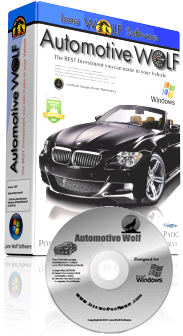|
Windows XP/7/8/10/11
|
 |
 No Risk 30 Day Free Trial |
HOME | INTRO | FEATURES | DOWNLOAD | PURCHASE | SCREEN SHOTS | REVIEWS | CAR CARE TIPS |
| Car Care Tips - Check the Tire Pressure |
| Car tire pressure is important for several
reasons: Check it at least once per month. 1. Safety: Proper tire pressure is crucial for ensuring safety on the road. Underinflated tires can cause handling issues, reduced braking performance, and increased risk of a blowout. Overinflated tires, on the other hand, can lead to reduced traction and a higher risk of hydroplaning on wet surfaces. Maintaining the recommended tire pressure helps to optimize grip and control, minimizing the chances of accidents. 2. Fuel Efficiency: Incorrect tire pressure can affect fuel efficiency. Underinflated tires increase rolling resistance, which means your engine has to work harder to propel the vehicle forward, resulting in decreased fuel efficiency. Properly inflated tires reduce rolling resistance, helping you save fuel and reduce emissions. 3. Tire Longevity: Maintaining the correct tire pressure helps extend the life of your tires. Underinflated tires cause excessive wear on the tire shoulders, reducing their lifespan. Overinflated tires wear more in the center, leading to premature tire replacement. By keeping the tires properly inflated, you ensure even wear across the tread, maximizing their longevity. 4. Handling and Performance: Tire pressure affects the handling and performance of a vehicle. Properly inflated tires maintain optimal contact with the road surface, providing better traction, cornering stability, and braking performance. This is especially important in emergency situations or during adverse weather conditions. 5. Comfort: Inadequate tire pressure can affect the comfort of your ride. Underinflated tires make the vehicle feel sluggish and can cause excessive vibrations. Properly inflated tires contribute to a smoother and more comfortable driving experience. To ensure the correct tire pressure, refer to the vehicle owner's manual or the placard located on the driver's side door jamb, which provides the recommended pressure for your specific vehicle. It's important to check the tire pressure regularly, preferably when the tires are cool, and adjust as needed. |
Easily Track and Manage Maintenance Schedules for any type of Vehicle by Time, Distance or Hours
30 Day FREE Trial
HOME | INTRO | FEATURES | DOWNLOAD | PURCHASE | SCREEN SHOTS | REVIEWS | Videos | FAQ | EULA | CONTACT US | CAR CARE TIPS |
Copyrightę Lone Wolf Software - www.lonewolf-software.com
Automotive Wolf Car Maintenance Software can also be found at :
Car Care | Contact Management | Home Inventory & Management | Backup | Text & Document Organization | Web Site Monitoring | ToDo Lists



